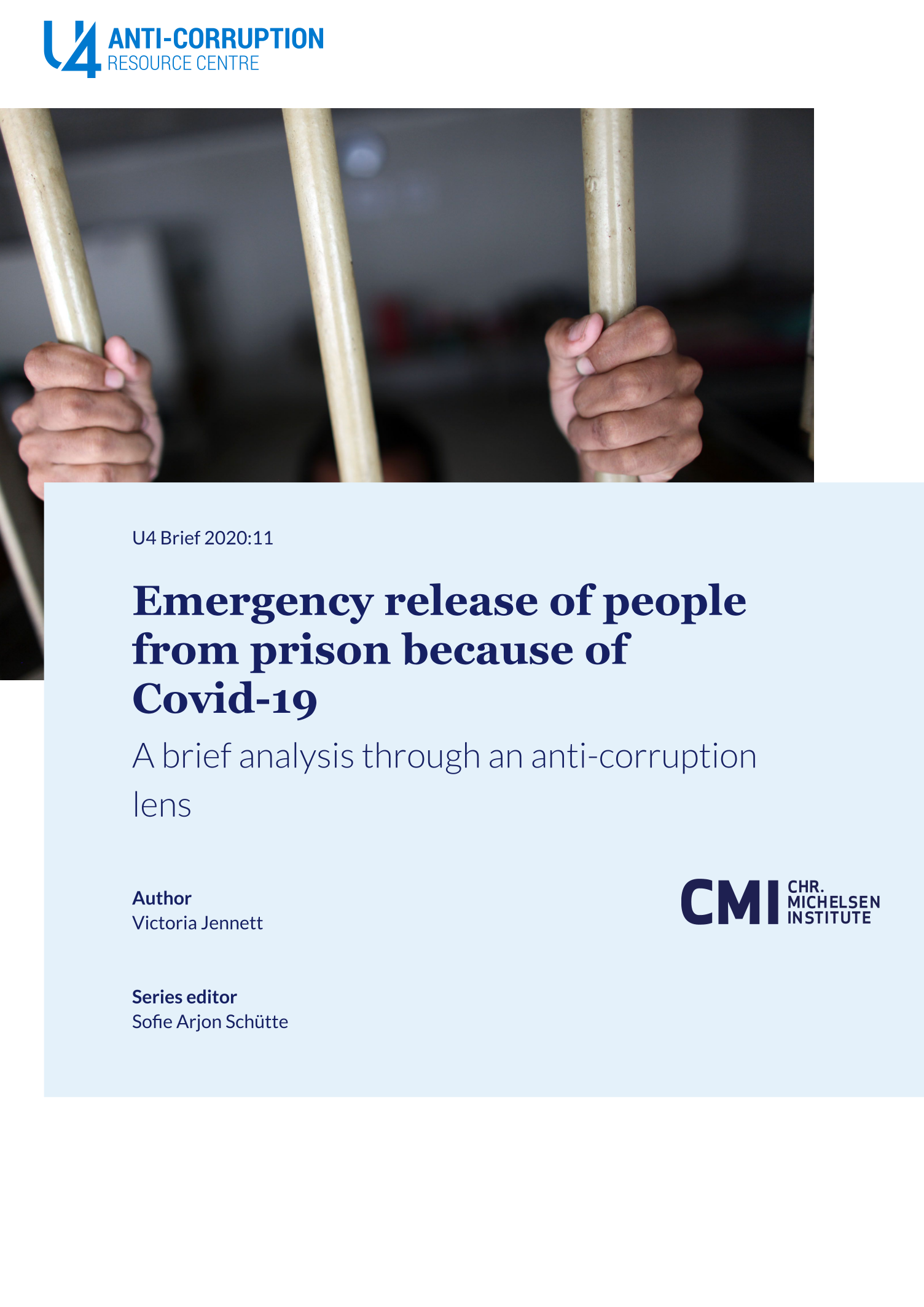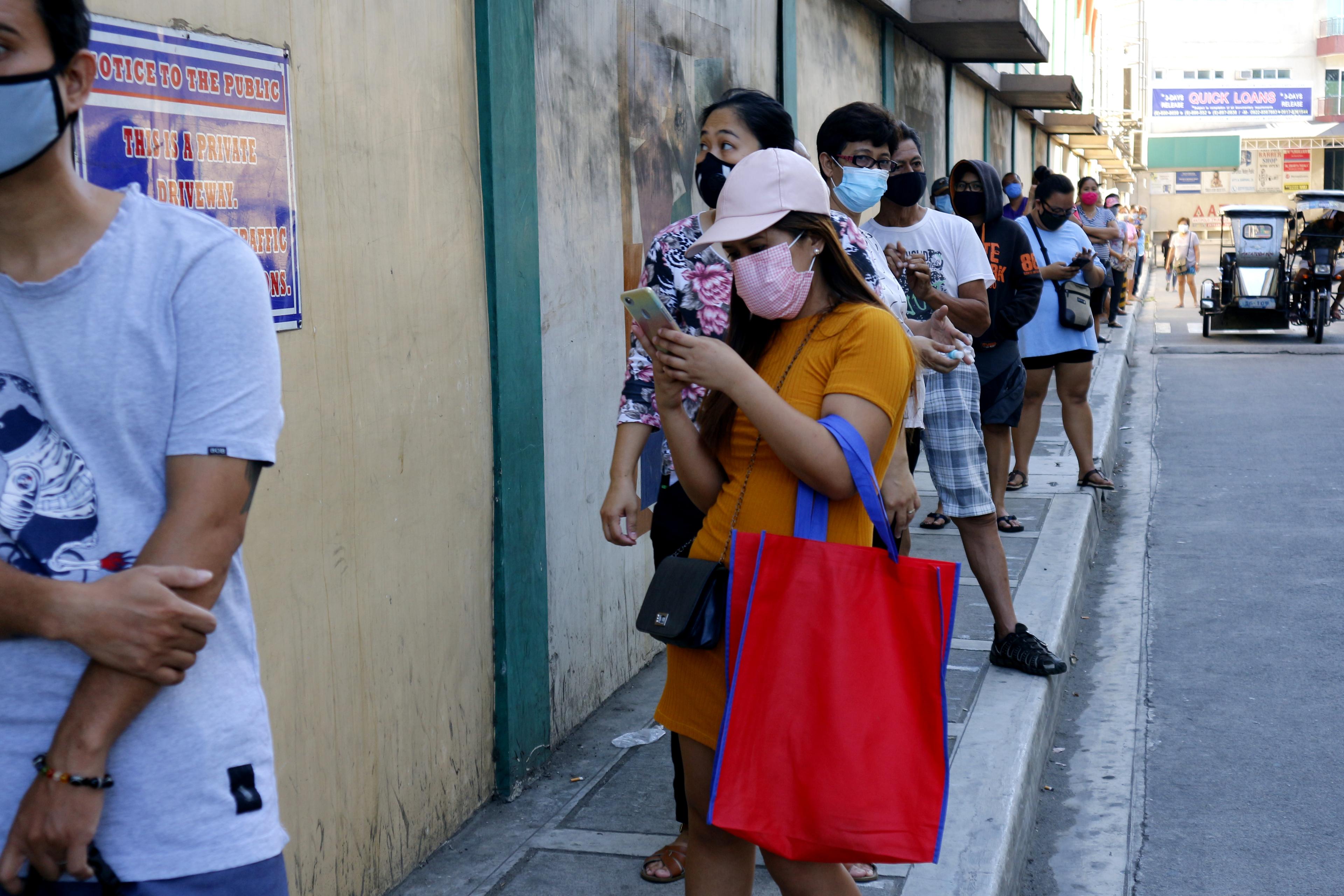Main points
- Emergency prison release mechanisms to prevent the spread of Covid-19 can pose corruption risks due to weak design, uneven implementation, and inadequate oversight.
- Such releases take three main forms: prisoner amnesties declared by governments; emergency release procedures drafted by governments and implemented by prison directors; and court decisions to release individual prisoners or set out frameworks on who is eligible for release.
- These emergency procedures can enable the unjust release of politically connected prisoners convicted of corruption offences.
- To help maintain rule of law during the emergency, alternatives to custodial sentences in line with international standards can be imposed on newly released persons who have been convicted of corruption crimes.
- Conditions attached to releases can include, among others, status penalties, economic sanctions and monetary penalties, confiscation or expropriation of assets, and restitution or compensation to victims.
- In non-emergency times, as well, alternatives to custodial sentences can be used to sanction those convicted of corruption crimes as a means to mitigate financial and social damage caused by corruption and reduce prison overcrowding.



